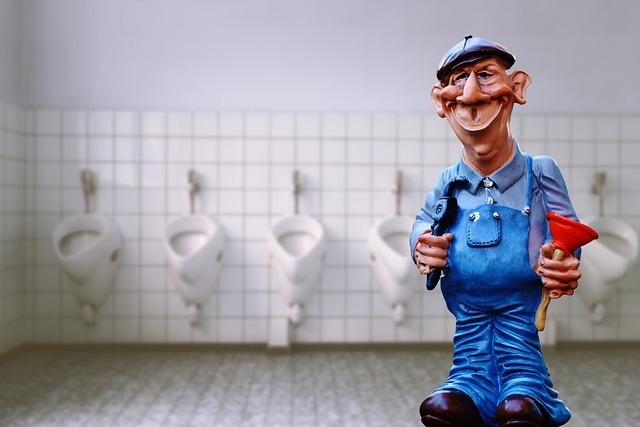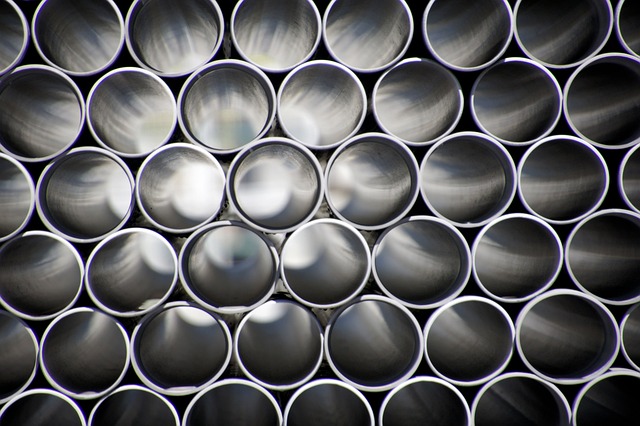Plumbers must understand and adhere to local plumbing codes and regulations, which vary by region. Regular inspections, permit acquisition, and staying informed about updates ensure safe, efficient plumbing systems, pass inspections, avoid legal issues, and contribute to robust community water infrastructure.
When it comes to plumbing installations or repairs, adhering to local codes and regulations is paramount for safety and quality. A skilled plumber plays a crucial role in ensuring all work meets these standards. This involves understanding specific rules and conducting meticulous inspections. Obtaining necessary permits and staying abreast of code changes are also integral parts of the process. By following these practices, plumbers maintain compliance, deliver reliable services, and protect homes and communities.
- Understand Local Plumbing Codes and Regulations
- Conduct Thorough Inspections to Comply
- Ensure Proper Permits are Obtained
- Stay Updated on Changes in Standards
Understand Local Plumbing Codes and Regulations

Before beginning any plumbing project, it’s crucial to understand the local codes and regulations governing your area. These rules are designed to ensure safe and efficient water systems while protecting public health. Every municipality has its own set of standards, so what applies in one city might not be relevant in another. A knowledgeable plumber should be well-versed in these local guidelines, covering everything from pipe sizes and materials to specific installation methods for different fixtures.
Understanding these codes is vital for several reasons. First, it helps prevent costly mistakes that could lead to future leaks or system failures. Second, it ensures your plumbing passes inspection, which is necessary for any real estate transactions. By adhering to local regulations, a plumber can also contribute to the overall quality and safety of the community’s water infrastructure.
Conduct Thorough Inspections to Comply

To ensure all plumbing meets local codes and regulations, thorough inspections are paramount. Skilled plumbers meticulously examine every aspect of a plumbing system, from fixtures and fittings to pipes and drainage, to verify their compliance with regional standards. These inspections not only safeguard against potential hazards like leaks or clogs but also help prevent costly repairs and legal issues down the line.
Regular and rigorous checks by professional plumbers ensure that all installations adhere to safety guidelines, water efficiency regulations, and waste management protocols. By conducting these inspections, plumbers can identify and rectify issues early on, guaranteeing not just the functionality of the plumbing system but also its longevity and environmental sustainability.
Ensure Proper Permits are Obtained

Before beginning any plumbing project, it’s crucial that both homeowners and professional plumbers ensure all necessary permits are obtained from local authorities. This step is vital to avoid legal issues and potential fines down the line. Every region has its own set of codes and regulations governing plumbing work, and securing the appropriate permits ensures your project aligns with these standards. A licensed plumber will be familiar with this process and can guide you through obtaining the required documents, ensuring a smooth and compliant installation.
Proper permit acquisition involves researching and understanding local requirements, filling out necessary applications, and providing detailed plans of the plumbing work. This may include submitting blueprints, specifying materials used, and even paying associated fees. By doing so, you not only protect yourself from legal repercussions but also contribute to maintaining a safe and regulated plumbing infrastructure in your community.
Stay Updated on Changes in Standards

Plumbers must stay abreast of changes in local plumbing codes and regulations, as standards are frequently updated to incorporate new technologies and safety measures. Keeping up with these revisions ensures compliance and allows plumbers to offer clients the most efficient and secure solutions. Regularly reviewing industry publications, attending workshops and seminars, and subscribing to relevant online resources are effective ways for plumbers to stay informed about changes in standards.
By remaining current on plumbing regulations, professionals can also adapt their services to meet evolving customer expectations. This proactive approach not only enhances service quality but also safeguards against legal issues related to non-compliance. Staying updated is an investment that pays dividends in terms of both professional integrity and business success for any reputable plumber.
When it comes to plumbing, adhering to local codes and regulations is non-negotiable. As a plumber, staying informed about these standards is vital to ensuring your work meets safety requirements. Regularly reviewing and understanding the latest plumbing codes, conducting meticulous inspections, obtaining necessary permits, and keeping up with regulatory changes are essential practices that guarantee compliance and protect both properties and public health. By doing so, you maintain your reputation as a reliable plumber who prioritizes quality and safety in every project.
